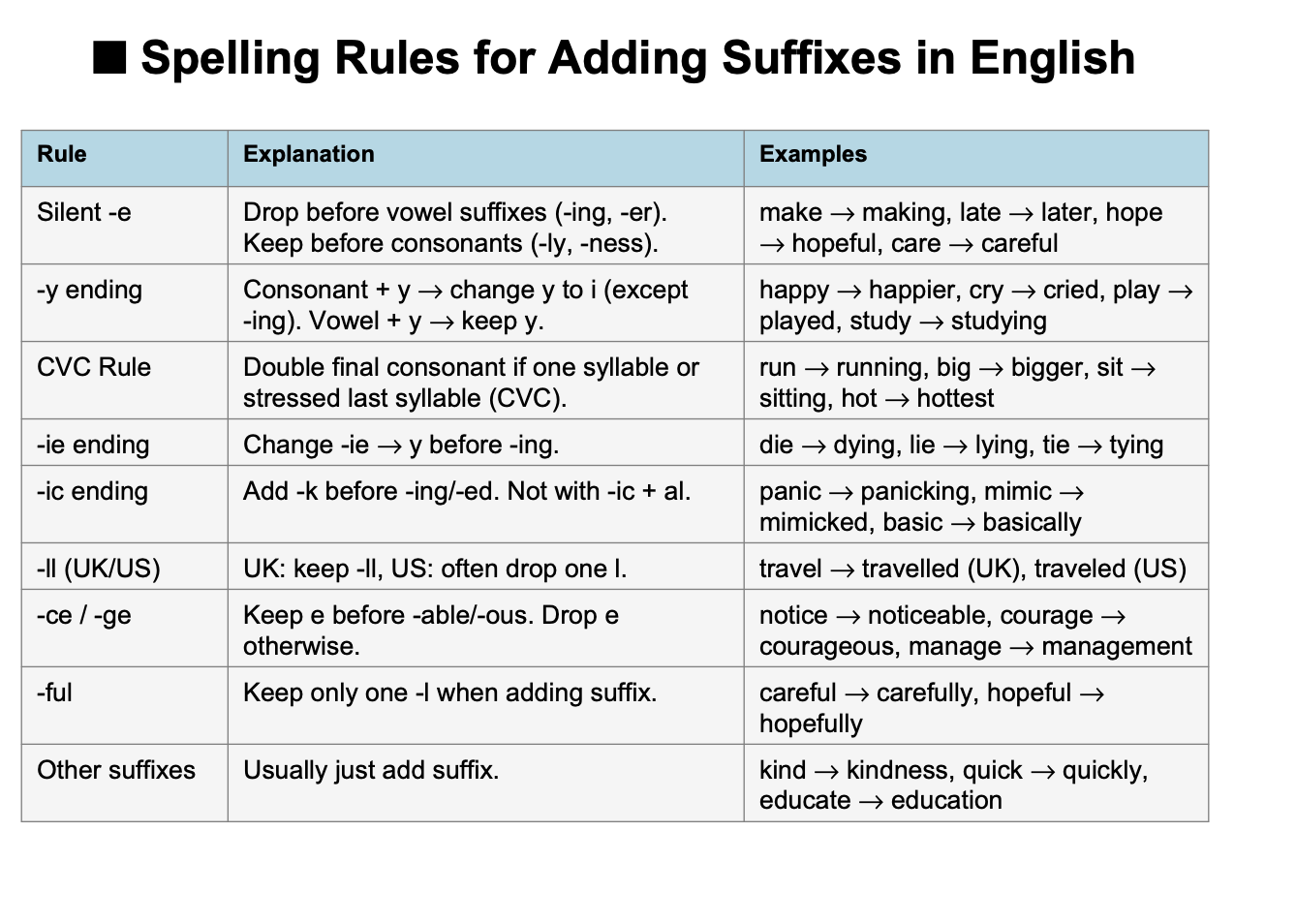The complete list of spelling rules for suffixes in English.
Categories: Basic English

Spelling Rules for Adding Suffixes in English
1. Words ending in silent -e
Drop the final -e before a suffix beginning with a vowel (-ing, -ed, -er, -est, -able, -ous)
make → making, hope → hoping, drive → driving, late → later, fame → famousKeep the -e before a suffix beginning with a consonant (-ly, -ness, -ful)
hope → hopeful, care → careful, late → lately, like → likeness❗ Exception: Sometimes keep the -e to keep pronunciation clear.
manage → manageable, change → changeable, notice → noticeable
2. Words ending in -y
If consonant + y, change y → i before suffix (except -ing)
happy → happier, happiness; try → tried; beauty → beautifulIf vowel + y, keep the y
play → played, playing; joy → joyfulBefore -ing, always keep y
study → studying, cry → crying
3. Doubling the final consonant (CVC Rule)
If a word has one syllable or the last syllable is stressed, and ends consonant–vowel–consonant (CVC) → double the last consonant before adding a suffix starting with a vowel (-ing, -ed, -er, -est)
run → running, runner; sit → sitting; big → bigger, biggest; hot → hotter, hottest❗ Do not double if the final consonant is preceded by two vowels
keep → keeping, need → needed, read → reader❗ Do not double if the last syllable is not stressed
open → opening (not openning), visit → visiting
4. Words ending in -ie
Change -ie → y before adding -ing
die → dying, lie → lying, tie → tying
5. Words ending in -ic
Add -k before -ing, -ed
panic → panicking, mimic → mimickedBut not for adjectives ending in -ic + al
basic → basically
6. Words ending in -ll
In British English → usually keep -ll and add suffix
travel → travelled, travellingIn American English → often drop one l
travel → traveled, traveling
7. Words ending in -ce / -ge
Keep the e before -able, -ous to keep the soft sound
courage → courageous, notice → noticeable, advantage → advantageousDrop the e for other suffixes
manage → management, service → servicer
8. Words ending in -ful
Only one -l is kept when adding suffix
careful → carefully (not carefullly), hopeful → hopefully
9. Words ending in -ment, -ness, -ly, -tion
Usually just add suffix with no spelling change
kind → kindness, develop → development, quick → quickly, educate → education
✅ Summary of Key Rules
Drop silent -e before vowels, keep before consonants.
Change -y → i (except before -ing).
Double consonant if CVC + stressed syllable.
Change -ie → y before -ing.
Keep extra -e after soft c/g before -ous, -able.
Watch out for British vs. American spelling differences (-ll).